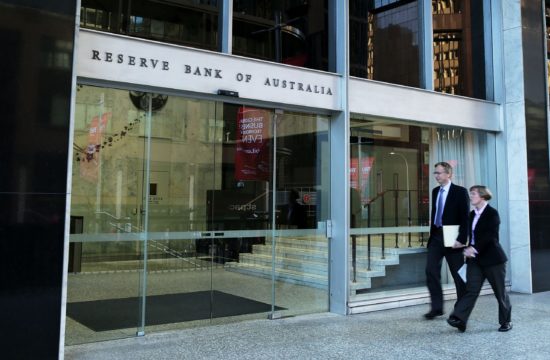Our Financial Policy Committee (FPC) meets to identify risks to financial stability and agree policy actions aimed at safeguarding the resilience of the UK financial system.
The Financial Policy Committee (FPC) aims to ensure the UK financial system is prepared for, and resilient to, the wide range of risks it could face – so that the system can serve UK households and businesses in bad times as well as good.
The Covid-19 pandemic is having a severely disruptive economic impact, with repercussions for UK households and businesses. The FPC is focused on ensuring that the financial system does not amplify economic stress, and that its resilience is put to good effect in the service of the UK economy during this period.
The performance of the UK financial system during the pandemic
UK households and businesses have needed support from the financial system to weather the economic disruption associated with Covid-19. Reflecting the resilience that has been built up since the global financial crisis and, alongside the extraordinary policy responses of the Government and of the Bank of England, the financial system has so far been able to provide that support.
The Committee estimates that, under the central projection in the August 2020 Monetary Policy Report (MPR), companies could face a cash-flow deficit of up to around £200 billion. Although in aggregate they hold substantial buffers of cash, many UK businesses have needed additional financing to minimise the impact on employment and productive capacity.
With government-backed loan guarantee schemes in place, the financial system has met the initial surge in demand for credit. Stabilised by central bank actions, financial market functioning has recovered after an abrupt and disruptive ‘dash for cash’ in March. Since the start of the Covid-19 pandemic, businesses have raised over £70 billion of net additional financing from banks – primarily through government-backed loan guarantee schemes – and through access to financial markets. Over the same period, they have borrowed £18 billion through the Covid Corporate Financing Facility (CCFF).
UK households entered the Covid-19 shock in a stronger financial position than at the start of the global financial crisis, in part due to financial policies that have guarded against an increase in the number of highly indebted households. This has been further supported by 1.9 million mortgage payment holidays granted to households, so that debt-servicing pressures remain low overall. It will be important for lenders to work flexibly with borrowers as they resume repayments.
The outlook for financial stability as the Covid-19 shock evolves
Banks
While the number of corporate insolvencies has remained low to date, it is likely to increase. Some companies may struggle because they were highly leveraged or unprofitable at the outset and others face pressure because of structural changes in the economy. Unemployment is expected to rise. These developments mean banks will incur losses on their corporate, consumer and mortgage loan books.
In May, the FPC judged that banks had buffers of capital that were more than sufficient to absorb the cumulative losses under the illustrative economic scenario in the May MPR which, under prudent assumptions, generated credit losses of just over £80 billion.
As set out in the Monetary Policy Committee’s (MPC’s) central projection in the August MPR, economic output is expected to have fallen substantially, but the cumulative loss of output resulting from the pandemic is projected to be somewhat smaller than in the illustrative economic scenario in the May MPR. The FPC judges that the central projection would be consistent with credit losses of somewhat less than £80 billion and therefore continues to judge that banks have buffers of capital more than sufficient to absorb the losses that are likely to arise under the MPC’s central projection. Also taking into account the Government’s lending guarantee schemes, banks have the capacity to continue providing credit to support the UK economy.
That said, the banking system cannot be resilient to all possible outcomes – there are inevitably very severe economic outcomes that would challenge banks’ ability to lend.
However, the FPC recognises that, having entered a period of stress, there are costs to banks taking defensive actions, such as cutting lending to seek to boost their resilience. By restricting lending, those actions could make the central outlook materially worse.
The FPC therefore takes an explicitly countercyclical approach to stress testing banks; building up their resilience outside stress periods so that their buffers of capital can then be used in a stress to continue to lend. Defensive actions may be necessary in stress but only if there is a material probability of the economy following a path so severe that it might jeopardise banks’ resilience and challenge their ability to absorb losses and continue to lend.
The FPC has carried out a ‘reverse stress test’ to analyse how much worse than the central projection the economic outcome would need to be in order to deplete regulatory capital buffers by as much as in the 2019 stress test that informed the setting of those buffers. In that exercise, banks’ capital ratios were depleted by more than 5 percentage points. Because banks actually have capital buffers that are bigger than this, such a depletion of capital would, in aggregate, use up only around 60% of the buffers which sit above their minimum requirements.
To deplete capital ratios by more than 5 percentage points, banks would need to incur credit impairments of around £120 billion. The Committee estimates that, to generate such losses, the cumulative loss of economic output resulting from the Covid-19 pandemic would need to be around twice as big as in the MPC’s central projection and the unemployment rate would need to rise very sharply, to around 15%. This would require events to have an economic impact worse than that seen from March onwards.
Based on this exercise, the FPC judges banks to be resilient to a very wide range of possible outcomes. It would therefore be costly for them and for the wider economy to take defensive actions. It remains the FPC’s judgement that banks have the capacity, and it is in the collective interest of the banking system, to continue to support businesses and households through this period.
Markets
Companies, including financial institutions, rely on the smooth functioning of a set of important markets, such as corporate debt and equity markets to raise funds, and government bond and repo markets to meet their cash-flow needs. Material economic damage can be caused when these markets fail to function properly.
In times of severe stress, central banks can effectively restore market functioning with large-scale market interventions, as they did in March. But these interventions can pose risks to public funds and can encourage excessive risk-taking by investors. There must be an appropriate balance between private sector resilience and reliance on central bank liquidity support.
While the recent shock was exceptionally severe, the reliance on extraordinary central bank support to address dysfunction in key markets suggests there is a need to review the resilience of investors and markets under stress.
Recognising the global nature of the markets, this work needs to be internationally co-ordinated.
The FPC welcomes the work by the Financial Stability Board (FSB) to undertake a comprehensive review of the provision of market-based finance in light of the Covid-19 shock. The FPC has identified the need for further work domestically and internationally to examine: margin calls in stress; limits to dealers’ capacity to intermediate markets; the role of leveraged investors; risks relating to money market funds and other open-ended funds, and to assess the linkages and exposures between different parts of the system.
Equity finance for companies
Companies that are not currently listed may benefit from greater access to equity finance: as a source of finance for already highly leveraged companies, as a means to repair balance sheets after the economic disruption eases, and to support the entry of new companies and growth of incumbents.
HM Treasury has asked the FPC to consider, as part of its remit, how the UK financial system could better support the supply of finance for productive investment, including how financial regulation and changes to the financial system’s structure may have affected the balance between financial stability and the supply of productive finance in all regions and nations of the UK.
While recognising that reforms to regulation alone are unlikely to transform levels of productive investment in the UK, the FPC intends to focus on examining possible distortions to the supply of illiquid long-term and equity-like investments. It will examine why pension funds allocate only a small proportion of assets to illiquid investments and, through the Government’s review of Solvency II, consider whether any disincentives to insurance companies investing in longer-term assets can be removed without reducing insurers’ safety and soundness or policyholder protection.
The FPC will also seek, through the joint Bank of England and Financial Conduct Authority review of open-ended funds, to address distortions that discourage the use of funds with longer redemption notice periods or closed-ended funds. These may be a more appropriate vehicle for investing in certain illiquid assets.
The FPC welcomes the FCA seeking views on whether existing frameworks limit access to capital markets for willing investors and particularly for smaller companies, as they seek to recapitalise after the Covid-19 shock.
Maintaining the resilience of the financial system: The UK’s relationship with the EU after the transition period
Most risks to UK financial stability that could arise from disruption to cross-border financial services have been mitigated, even if the current transition period ends without the UK and EU agreeing specific arrangements for financial services. This reflects extensive preparations made by authorities and the private sector. Thus far, the Covid-19 pandemic has not materially delayed preparations in the financial sector overall.
Further action is needed to minimise risks of disruption to derivatives markets. Although such disruption would primarily affect EU households and businesses, it could increase volatility and spill back to the UK in ways that cannot be fully anticipated or mitigated. Disruption to cleared derivatives markets can be avoided by ensuring clarity on the recognition of UK central counterparties by the end of September.
Irrespective of the particular form of the UK’s future relationship with the EU, and consistent with its statutory responsibilities, the FPC will remain committed to the implementation of robust prudential standards in the UK. This will require maintaining a level of resilience that is at least as great as that currently planned, which itself exceeds that required by international baseline standards, as well as maintaining UK authorities’ ability to manage UK financial stability risks.
Libor
It is essential to end reliance on Libor benchmarks before end-2021. After that point, Libor benchmarks could cease to be available at short notice.
Authorities and industry working groups have revised plans which seek to ensure that the transition from Libor is delivered by then. The FPC welcomes the forthcoming publication of a protocol for legacy Libor-linked derivatives contracts by ISDA. Firms should seek to incorporate appropriate fallback language into their legacy derivatives contracts.
Contractual parties who can transition away from Libor should do so on terms that they themselves agree with their counterparties. This provides the best route to certainty for parties to contracts referencing Libor. By contrast, those who rely on regulatory action, enabled by the legislation that the Government plans to bring forward, will not have control over the economic terms of that action – and it may not be able to address all issues, or be practicable in all circumstances.
Payments innovation
New ways of making payments that become critical to the functioning of the economy will need to be regulated to clear standards.
Regulation should ensure that innovation can progress safely, without causing serious interruptions in payment and settlement services. The chains of activities that are relied upon for payments to be made need to be operationally and financially resilient.
Stablecoins are crypto-assets that purport to achieve a stable value against a fiat currency or other assets. Where stablecoins are used in systemic payment chains in place of money, they must offer the equivalent protections to stable and reliable money currently used in traditional systemic payment chains, whether central bank money – in the form of reserves held at the central bank or cash – or private commercial bank money – bank deposits.
Some major stablecoin proposals do not appear at present to meet these expectations. While this might be acceptable for speculative investment purposes, it would not be for payments widely relied upon by UK households and businesses.
In the December 2019 Report, the FPC noted that the current UK regulatory framework would need adjustment in order to accommodate innovation in payments. The FPC supports the work of the UK authorities to consider reforms to payments regulation to ensure that these principles can be met, and welcomes the launch of the Call for Evidence by HM Treasury as part of its Payments Landscape Review. The FPC will continue to monitor developments closely. Consistent with its statutory responsibilities, it will where necessary, make Recommendations to HM Treasury regarding gaps in the regulatory perimeter which might represent risks to financial stability.













